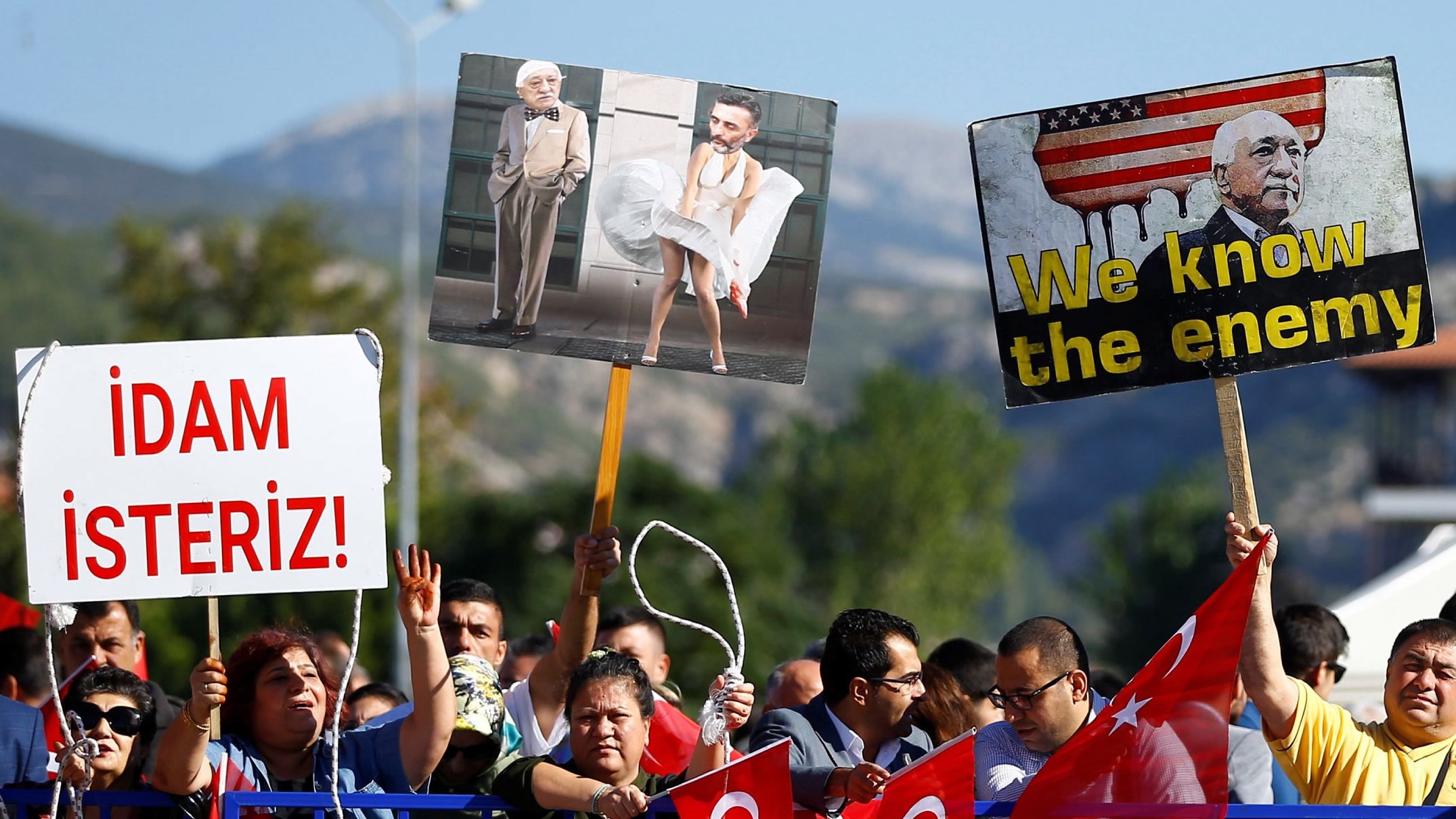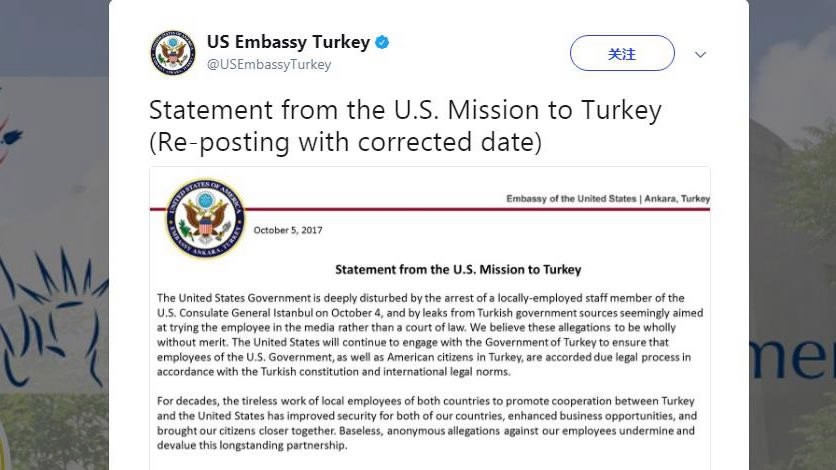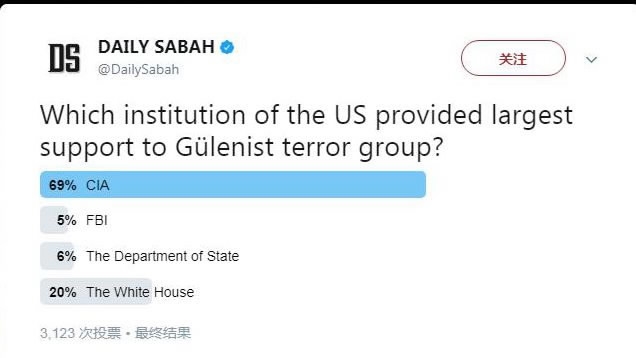The arrest of a US consulate employee in Istanbul this week is the latest jolt to the deteriorating relations between Turkey and the US, which have witnessed a constant decline since the July 2016 failed coup bid, claimed by Ankara to be masterminded by a US-based Turkish cleric.
The US consulate staffer, now identified as Turkish citizen Metin Topuz, was detained under great secrecy four days prior to his official arrest late Wednesday by an Istanbul court over his alleged links to US-based cleric Fethullah Gulen’s movement, now listed by Ankara as a terror group called Fethullah Terrorist Organization.
Turkish state-run Anadolu news agency reported that Topuz has been formally charged with espionage and seeking to overthrow the Turkish government.
The US embassy in Ankara, through its Twitter account, responded on Thursday saying it was "deeply disturbed" by the development and that the allegations against its local staffer was "wholly without merit."
The US embassy also alleged that there’s an attempt "seemingly aimed at trying him (Topuz) in the media rather than a court of law," through selective leaks in the local press by Turkish government sources.
"Baseless, anonymous allegations against our employees undermine and devalue this longstanding relationship" between the two NATO allies, the statement said.
In a statement released late Thursday, the Turkish Foreign Ministry said the name of the suspect is not among the official list of staff of the US Consulate General in Istanbul, and he does not have a diplomatic immunity.
The American embassy said the US will "continue to engage" with Ankara to ensure its employees and US citizens are accorded "due legal process."
Arrest hints at tacit US hand in coup bid
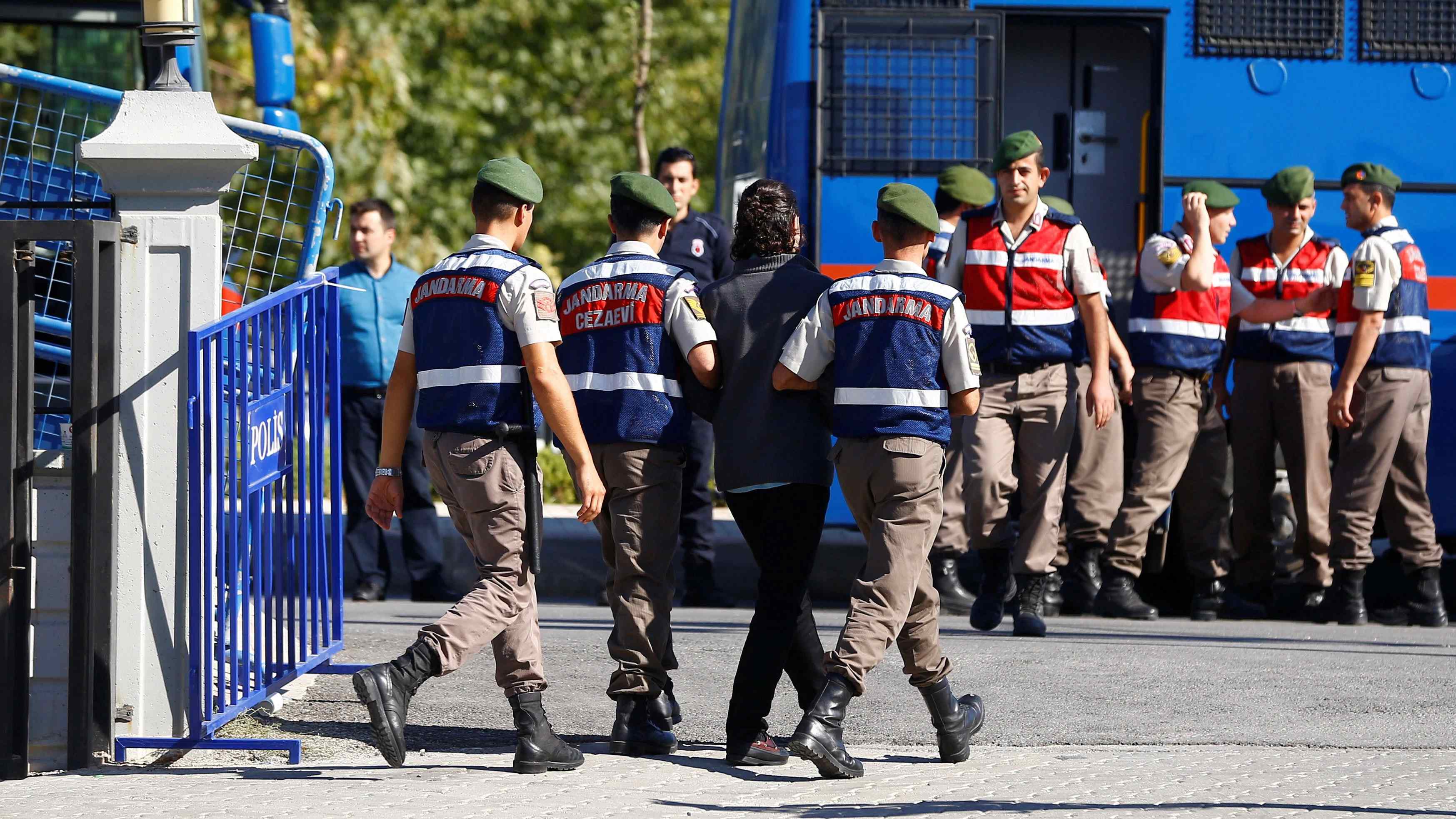
An unidentified soldier accused of attempting to assassinate Turkish President Tayyip Erdogan on the night of the last year's failed coup, is escorted by gendarmes as he leaves from the final hearing of the trial in Mugla, Turkey, on October 4, 2017. /Reuters Photo
An unidentified soldier accused of attempting to assassinate Turkish President Tayyip Erdogan on the night of the last year's failed coup, is escorted by gendarmes as he leaves from the final hearing of the trial in Mugla, Turkey, on October 4, 2017. /Reuters Photo
Topuz is accused of having links with at least four former pro-Gulen police chiefs who are being prosecuted for leading a 2013 corruption probe, which Ankara says was orchestrated by Gulen in a bid to topple the Turkish government led by the current President Recep Tayyip Erdogan, who was then the prime minister.
Topuz is also being probed for his links to ex-prosecutor Zekeriya Oz who brought in several corruption allegations against Erdogan’s inner coterie in 2013. Oz is now a fugitive.
Authorities have also determined that Topuz had "intense phone conversations" with Adil Oksuz, another fugitive suspect in the July 2016 coup attempt, and his colleagues, Turkey's presidential spokesman Ibrahim Kalin said in a televised interview on Thursday.
Giving out further details of the case against Topuz in the local media, Kalin said Turkish government has reasons to believe a telephone call was made from the US consulate to Oksuz on the night of the failed coup.
"Since he (Topuz) was detained then arrested, there must be serious evidence," Kalin told TRT Haber.
The case also gives credence to what many Turks openly believe – that the US was directly involved in the 2016 coup plot. Right-wing and pro-government media outlets have repeatedly accused the United States of being somehow involved in the conspiracy to topple the Turkish government.
In the immediate aftermath of the coup bid, when Turkish pro-government Daily Sabah conducted a poll on Twitter asking: “Which institution of the US provided largest support to Gulenist terror group?”, 69 percent voted CIA, while 20 percent voted the White House.
Gulen remains a bone of contention
Turkey has pressed Washington for the extradition of the Pennsylvania-based Gulen, who denies any link to the coup bid.
Erdogan has gone on record saying his government had sent "85 boxes of concrete evidence" against Gulen movement's involvement in the July 2016 coup attempt for assessment by US judiciary, but no steps have been taken yet.
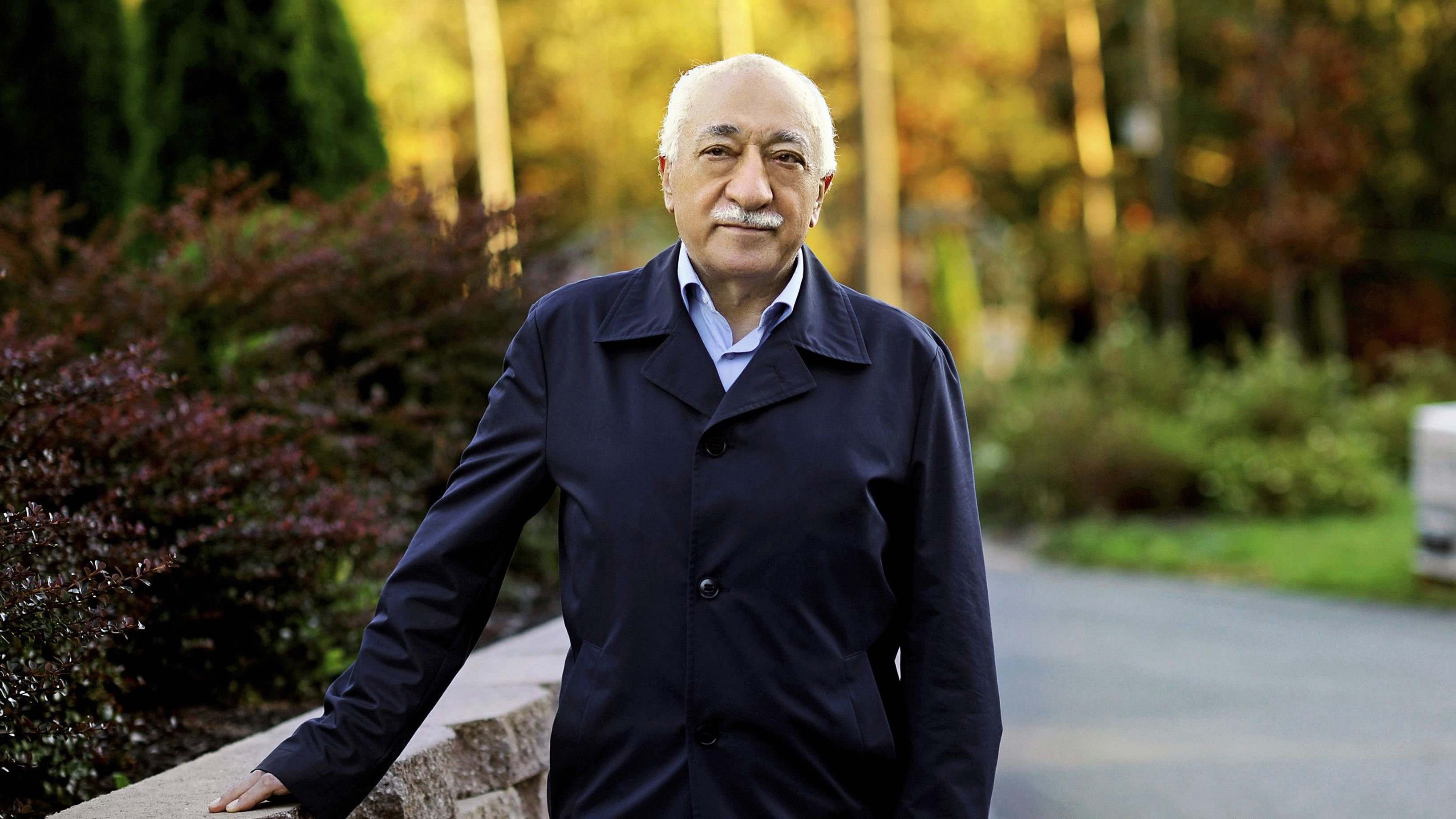
Turkey has pressed Washington for the extradition of the Pennsylvania-based Turkish cleric Fethullah Gulen, who Ankara accuses of masterminding last year's failed coup attempt. Gulen denies any link to the coup bid. /Reuters Photo
Turkey has pressed Washington for the extradition of the Pennsylvania-based Turkish cleric Fethullah Gulen, who Ankara accuses of masterminding last year's failed coup attempt. Gulen denies any link to the coup bid. /Reuters Photo
Turkish officials had expressed hope of a thaw in Ankara-Washington relations under President Donald Trump. But ties have spiraled further after members of Erdogan's security detail were indicted by US authorities after clashes with protesters during an official visit this May. Erdogan last month claimed Trump apologized for the incident.
The Turkish president also suggested last month that Ankara could release American pastor Andrew Brunson - detained since October 2016 on charges of being a member of Gulen's group – if Washington handed over Gulen, but the US has shown little interest in the proposal.
Kalin insisted Turkey had never made an illegal extradition request from the US. "We have said return these people as part of the extradition agreement. Let them be tried here [in Turkey],” Erdogan’s spokesman was quoted as saying by AFP.
The lack of movement on the Gulen case has further strained ties between the two NATO allies already unraveling over US support for Syrian Kurdish fighters of People's Protection Units (YPG) and the Syrian Democratic Union Party (PYD).
Kurds: US 'allies' but Turkey's 'terrorists'
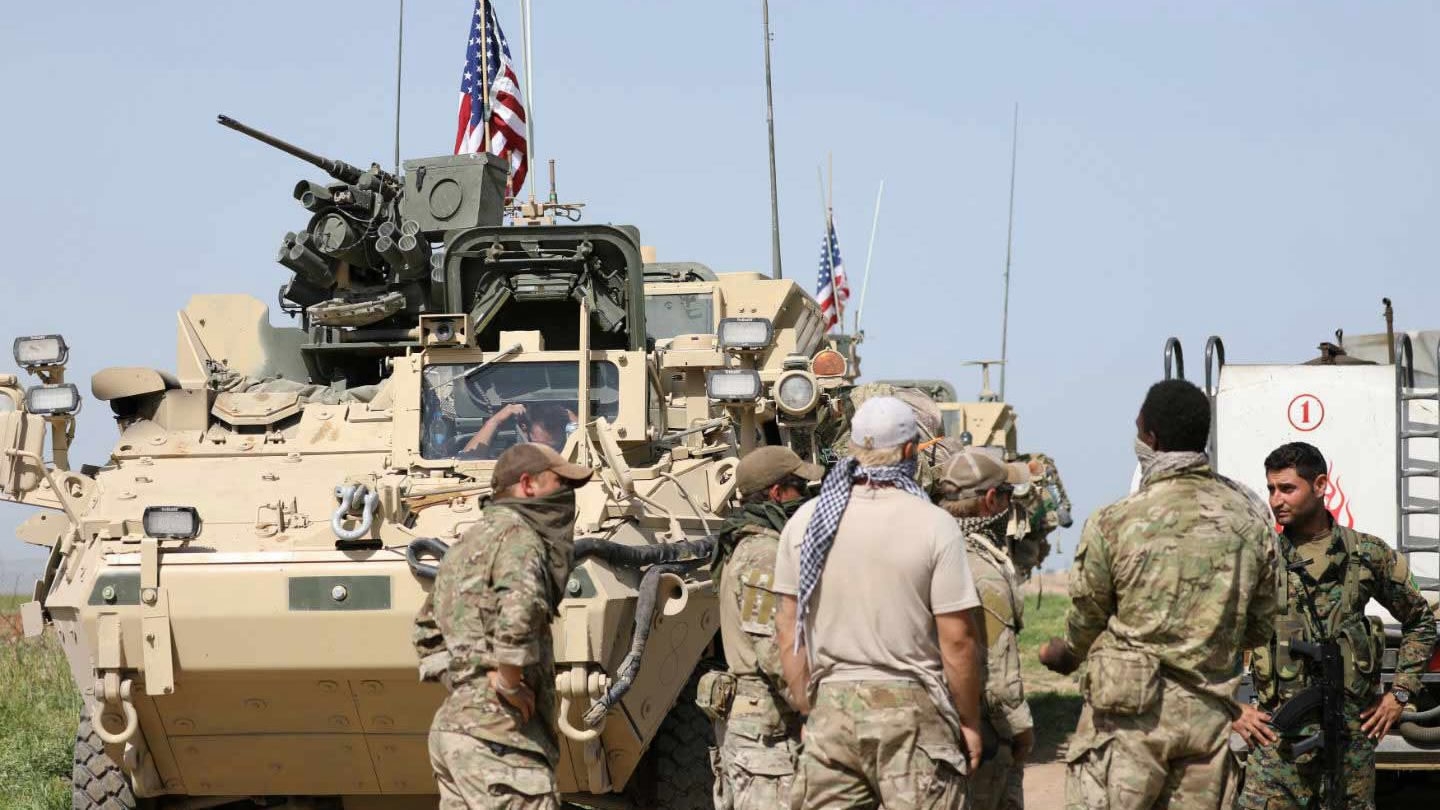
This undated file photo shows Kurdish fighters from the People's Protection Units (YPG) talking with members of US forces in Darbasiya, Syria. /Reuters Photo
This undated file photo shows Kurdish fighters from the People's Protection Units (YPG) talking with members of US forces in Darbasiya, Syria. /Reuters Photo
While Washington views the Kurdish fighters as major ally in fighting Islamic State of Iraq and the Levant (ISIL), Ankara sees them as an extension of the banned Kurdistan Worker’s Party (PKK), which has been fighting Turkish troops for decades in the southeastern part of the country. Turkish government refers to Syrian Kurds as "terrorists."
Last month, Erdogan slammed US for "arming terrorists" following the US Department of Defense’s decision to sell small arms, machine guns, armored vehicles and other military hardware to the Syrian Kurdish fighters.
The US reportedly told Ankara that it expects the return of weapons given to the YPG after ISIL is destroyed, and Defense Secretary James Mattis also promised to give Turkey a list of weapons supplied to the militia. Turkey remained unimpressed.
"And when we are not able to acquire those weapons from the United States, why are you giving those weapons to terrorists? It’s a question that we ask our friends in the United States. And when these questions are not answered, we’re feeling sorry, as the strategic partners to the US," Erdogan said in an interview with US broadcaster PBS.
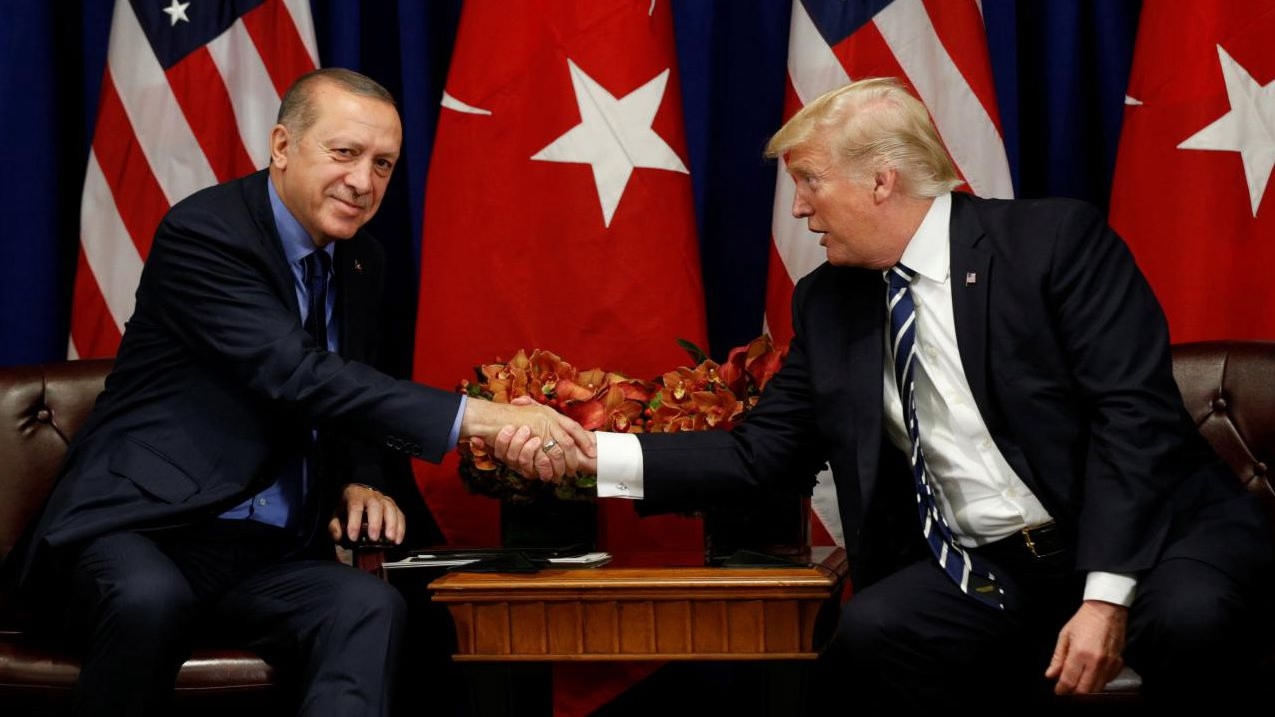
US President Donald Trump meets with President Recep Tayyip Erdogan of Turkey during the UN General Assembly in New York, on September 21, 2017./Reuters Photo
US President Donald Trump meets with President Recep Tayyip Erdogan of Turkey during the UN General Assembly in New York, on September 21, 2017./Reuters Photo
The Turkish president’s statement came just a day after AP reported that the US was pulling out of a major deal worth 1.2 million US dollars, which would have seen the Turkish government purchase arms, including hundreds of semi-automatic handguns and ammunition.
Earlier in March, another local employee of the US consulate in the southern province of Adana, Hamza Ulucay, was arrested on charges of being a PKK member.
Meanwhile in September, a US court indicted Turkey’s former economy minister, Zafer Caglayan, over conspiring to violate US sanctions against Iran.
Washington believes Caglayan illegally moved hundreds of millions of US dollars through the US financial system on behalf of Tehran, while Turkey maintains that he acted in accordance with international law.
The events unfolding in the past couple years show an increasing lack of trust between the two NATO allies, which may take a long time to rebuild.
(With input from agencies)

